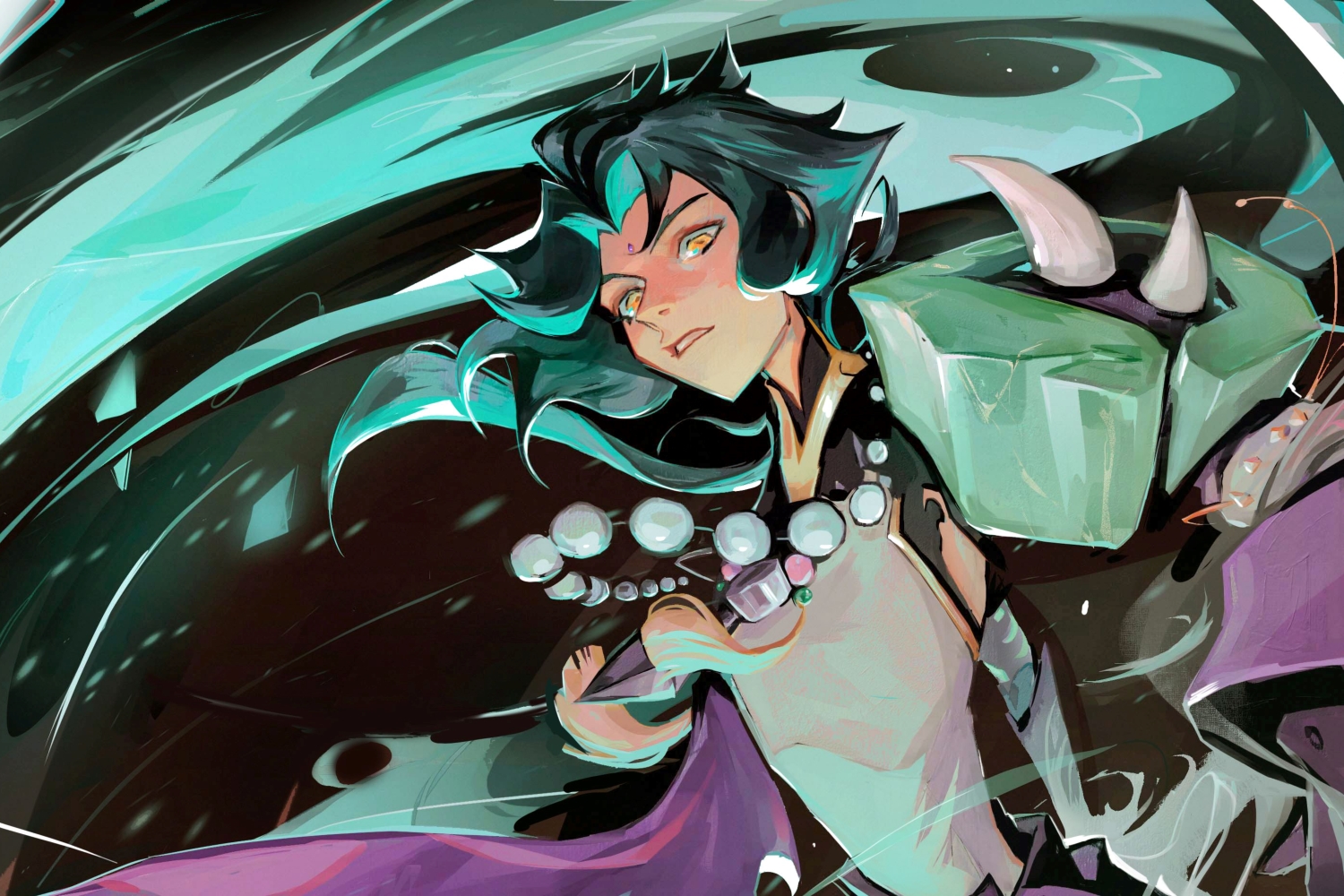Let's explore the dynamic world of comics, where creativity knows no bounds and imagination takes center stage. Join us as we sit down with Lorenza Pigliamosche, Italian comic artist, illustrator, and comic school teacher. In the next lines, we'll unravel the mysteries behind Lorenza's artistic process, explore the inspirations that fuel her storytelling, and discover the challenges and triumphs that come with bringing fantastical tales to life.
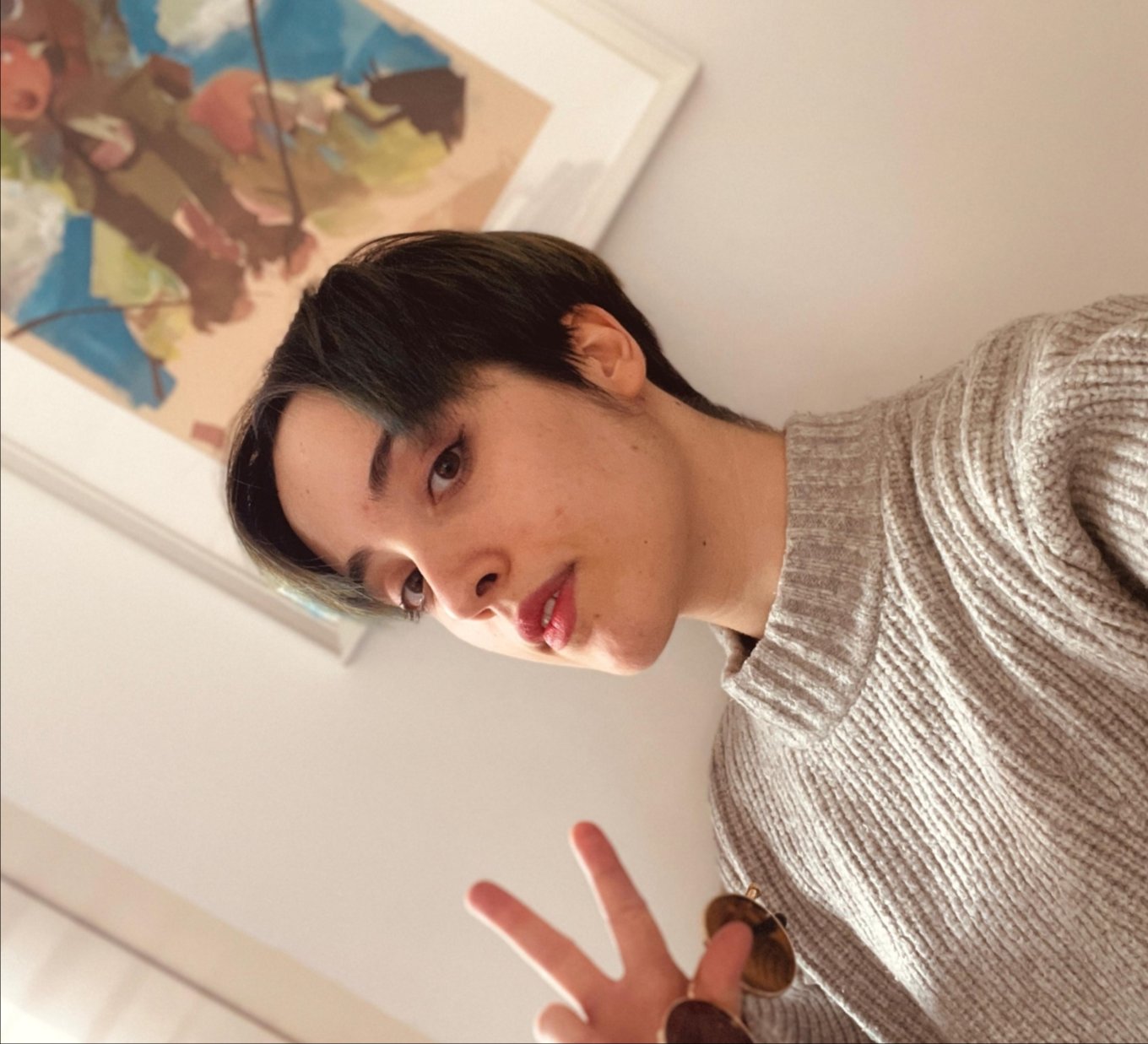
“I've always been fascinated by change and the comic industry is one of the first ones that have to be able to keep up with how fast our way of understanding and telling stories evolves. I don't think I've ever intentionally changed my approach over the years, I noticed, however, a change in the dynamism and direction of my works! Stagnation is terrifying for me.”
Lorenza Pigliamosche is a comic artist, illustrator, and comic school teacher born in Rome in 1997. She published her first comic with Noise Press in 2019 and from 2021 started working for publishers such as ProgItalia magazine, Mad Cave Maverick, tabletop and game companies such as The Upperdeck company, Ludus Magnus Studios, and Fallen Flag.
Can you tell us a bit about yourself and how you got started in the world of comic book art?
I was born in Rome in 1997 and I knew pretty much from a young age what I wanted to do in my life since I’ve always loved to draw, create, and tell stories I knew that, no matter what other interests I may have had or what temporary jobs I had to make a living while studying, comic art and illustration would be my main goal and purpose. I don’t want to come off as crazy but I swear that I’m so socially awkward and introverted that drawing and making music are my two main ways to share experiences with other people and to learn from them as well. 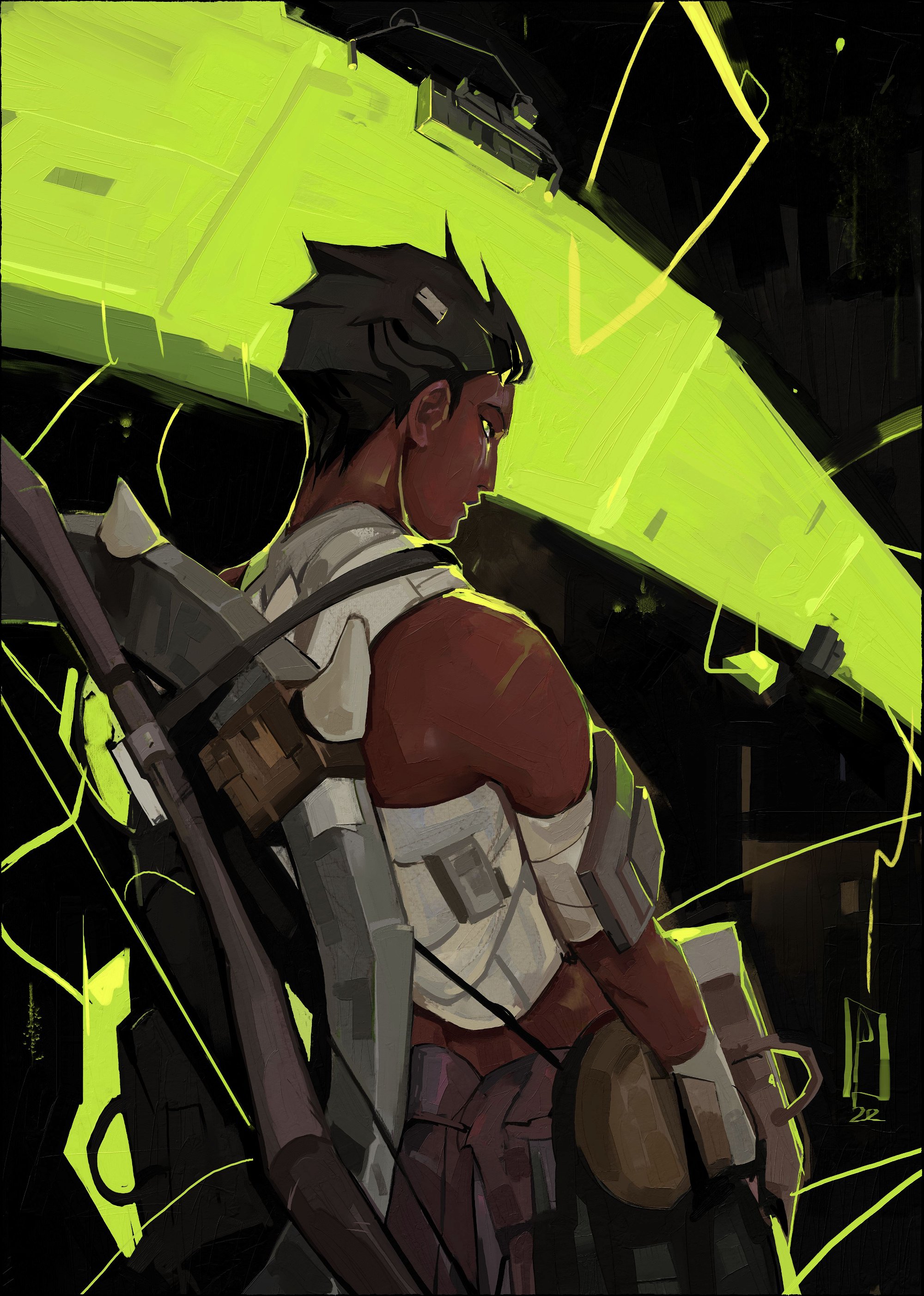 Who are some of your artistic influences, both within and outside the comic book industry?
Who are some of your artistic influences, both within and outside the comic book industry?
Uhm that’s a tough one, it’s too difficult to make a short list! But if I had to choose, I would say that there’s absolutely a big love for manga and anime since I grew up with them and they’re still a big part of my life, so authors like Taiyo Matsumoto, Hayao Miyazaki, Yoh Yoshinari, Tatsuo Yoshida, Hirohiko Araki, Katsuhiro Otomo, Naoki Urasawa, Akira Toriyama (and the list goes on!) absolutely inspired me. As for comics, I admire Alberto Breccia, Alex Toth, Jordi Bernet, Cyril Pedrosa, Fernandez, Cavenago, Zao Dao, Simone Di Meo, and generally all authors that manage to have excellent, almost cinematic storytelling while keeping an incredible drawing stylization. On the other hand, I’m also passionate about classical art, so I grew up studying most of the Italian painters from the 16th to 17th century, northern Italian ones in particular, who experimented a lot with big brushwork and psychological representation of their subjects. Then there are painters like Klimt, Layendecker, Malevich, and Rothko and sculptors like Pomodoro, Giacometti, and most of Ai Weiwei's compositions.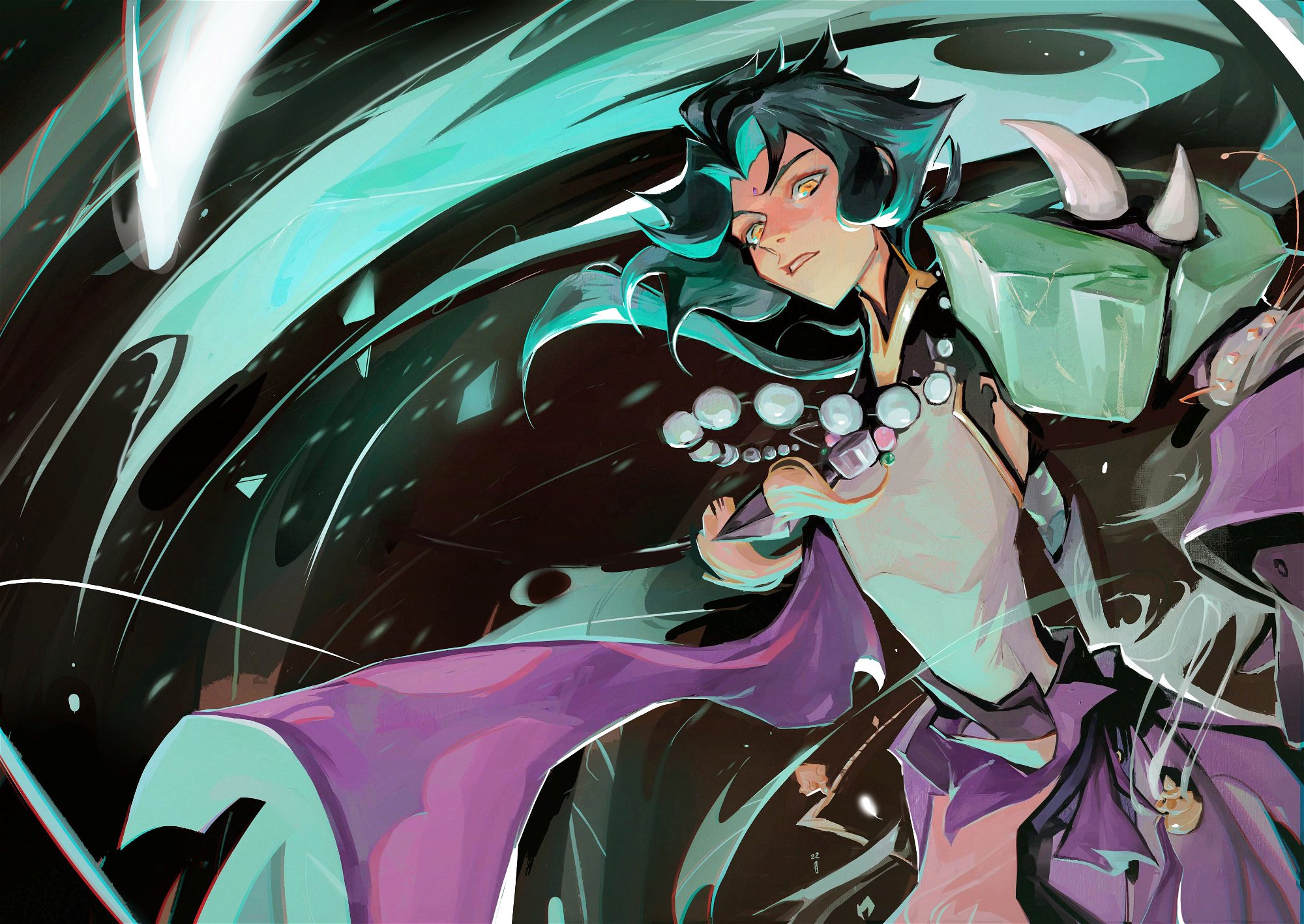 These surely are inspirational artists. In case our readers are not familiar with the work of some, maybe it will lead them to take a better look. Thank you for pointing us out to the right direction. Next, please walk us through your creative process when working on a new comic. Where do you start, and how do you develop your ideas? Do you have any specific rituals or routines that help you get into the right mindset for creating?
These surely are inspirational artists. In case our readers are not familiar with the work of some, maybe it will lead them to take a better look. Thank you for pointing us out to the right direction. Next, please walk us through your creative process when working on a new comic. Where do you start, and how do you develop your ideas? Do you have any specific rituals or routines that help you get into the right mindset for creating?
Though I’m a creature of habit (I don’t start working until I’ve had at least two coffees and cleaned everything around me, ugh) my creative process can be unpredictable and usually depends on the project I’m working on. If I’m drawing panels for a screenplay not written by me, I always read all the pages I’m given and then try to visualize what the comic would be like in my mind, almost as if it was an animated movie only to proceed with the storyboard and then the final pages. If I’m working on a personal project I would start the storyboard process right away (sometimes I can be impatient) but to me, it’s also a way to solidify the ideas in my mind, if that makes sense. As for the drawing process, that’s chaotic, some days I’ll start my painting/panels/concepts from basic shapes and silhouettes, other days I’ll start from the ink, then from the pencil, it really depends on my mood. I love to go out of my comfort zone.
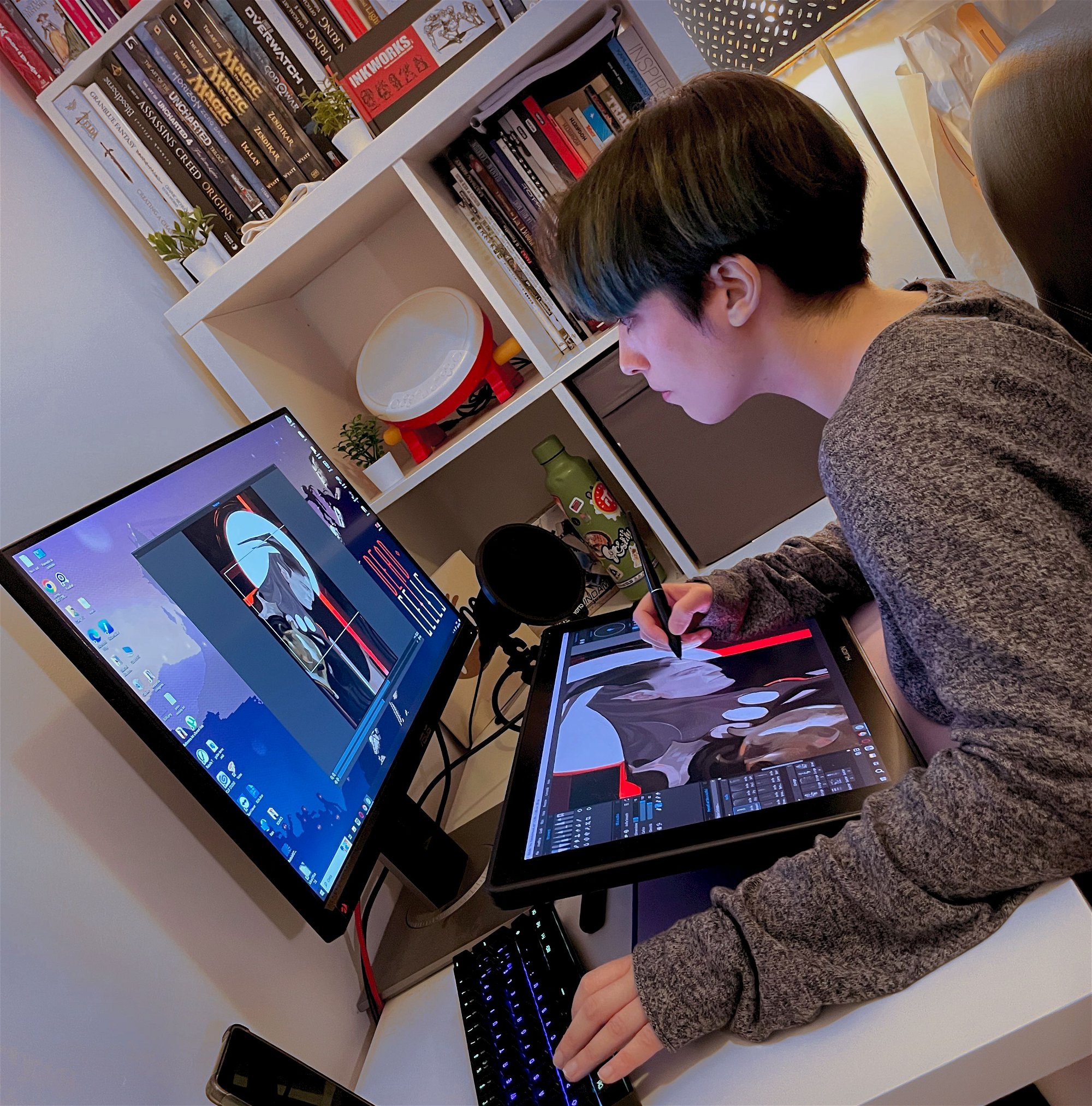 "I use Rebelle whenever I need to explore, sketch, and paint color keys or concepts. It has that same feeling of painting on a real canvas and whenever I have to go crazy with the chalk brushwork and pencil sketches, I know that Rebelle has my back!"
"I use Rebelle whenever I need to explore, sketch, and paint color keys or concepts. It has that same feeling of painting on a real canvas and whenever I have to go crazy with the chalk brushwork and pencil sketches, I know that Rebelle has my back!"
Comic book creation often involves collaboration with writers, editors, and other artists. How do you approach collaboration, and what do you enjoy most about it?
My very first gig was a collaboration with a writer (Luca Frigerio) I’m still working with! We’re so much on the same wavelength that working together is effortless and in general, I feel that collaborating on a project with other people often gives the best results since it’s always an opportunity to confront ideas and brainstorm, learn and experiment, that’s the best part. Even if I’m working on something personal, like my next project “RUN”, I always try to reach out for criticism, feedback, and ideas since I often feel like developing something all by myself would limit me. I think that after too much time spent on the project that I’m writing, drawing, and painting everything without any external discussion, there’s a big chance I would end up not seeing all the issues, limitations, and errors along the way. So as long as there’s good communication and goodwill by all parties, the creative potential that a team can have is the best part about all collaborations.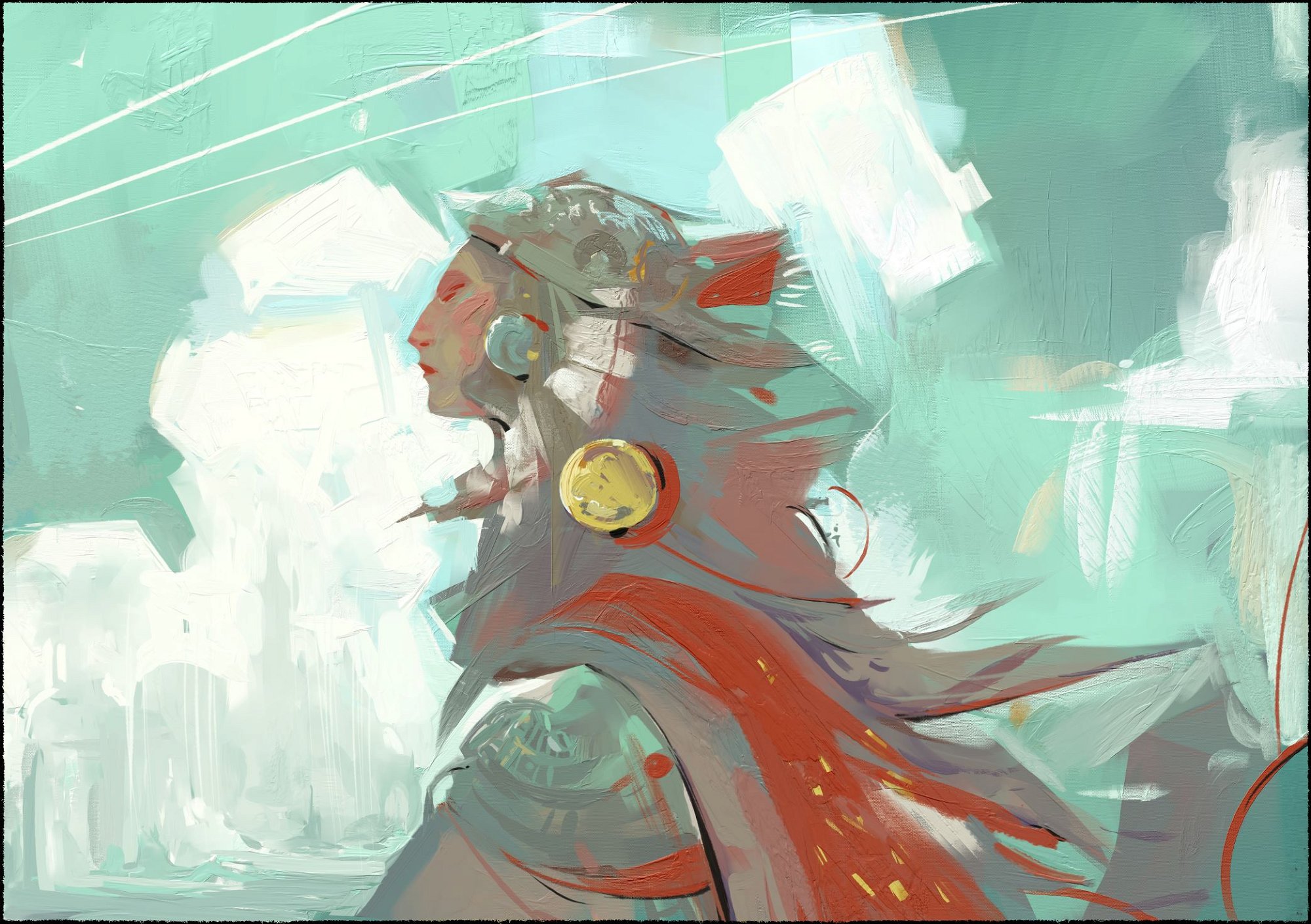 Is there a particular character or series that you enjoy illustrating the most?
Is there a particular character or series that you enjoy illustrating the most?
Probably most of Jojo’s Bizarre Adventure characters and now Astarion from Baldur’s Gate 3. I usually love to draw strange medieval/sci-fi knights of all kinds or magicians and kids in a post-apocalyptic world, some mecha stuff along the way, why not?
How have technological advancements, such as digital tools, affected your approach to creating comics? What role does Rebelle play in your workflow?
Digital painting in general gave my creative expression a boost due to its space-saving qualities! I lived in a small house and had my world on my PC, so I started experimenting with the digital medium as soon as I could but coming from a traditional painting background I always tried, not succeeding, to replicate what I did with real paint and ink in Photoshop, Corel Painter and then Clip Studio Paint, but it was when Rebelle 3 was gifted to me that I found my comfort software. Although I ink and develop my pages mainly on CSP, I use Rebelle whenever I need to explore, sketch, and paint color keys or concepts. It has that same feeling of sketching/painting on a real sketchbook or canvas and whenever I have to go crazy with the chalk textures/brushwork and pencil sketch, I know that Rebelle has my back! It also forces you to slow down your workflow, like traditional mediums do, giving you the time to relax and enjoy the process, which I think is the most important thing.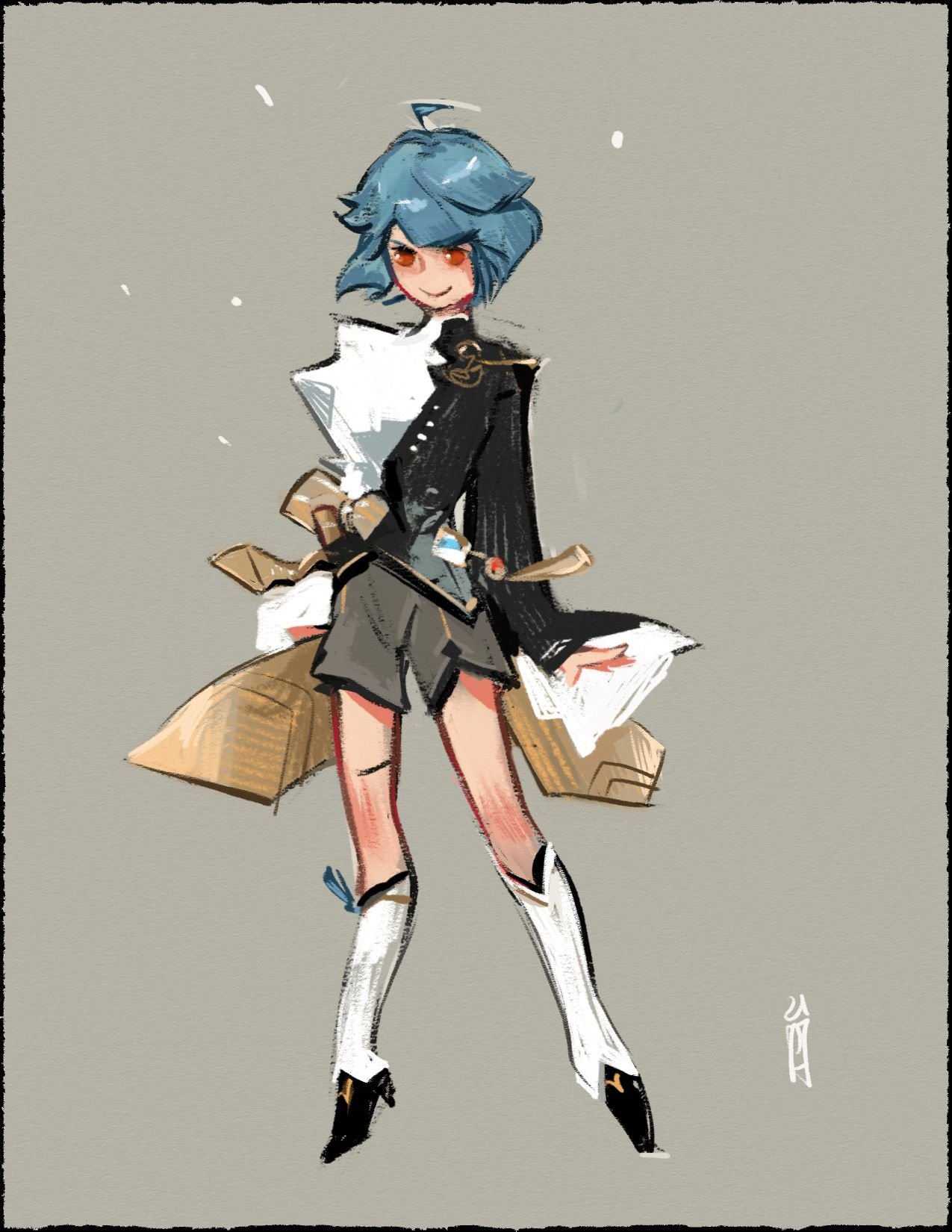 The comic book industry has seen increased efforts toward diversity and representation. How do you approach depicting diverse characters, and do you think there is still work to be done in this area?
The comic book industry has seen increased efforts toward diversity and representation. How do you approach depicting diverse characters, and do you think there is still work to be done in this area?
Of course, there’s still work to do in the sense that we’re seeing big houses making small steps in the right direction but most of the hard work is still done by small indie publishers, small authors, and independent artists, so I hope that the future will include even more different stories from all the possible backgrounds, I think that a big part of the industry, despite these small steps, still struggles to take risks both in the inclusivity matter and in the storytelling/writing and approach. Behind all the “glitter” you can see that some big companies are still old at heart, especially in my country!
Regarding my approach to representing all kinds of characters, research, and study is fundamental, no matter if I’m working on historical or fantasy things, research is crucial since I have limited life experience, how would I know how life in Japan as a homeless person is if not by researching it? I also believe that you must be able to not judge the characters you’re drawing and try to understand them, you know? I mean, sometimes I think “Oh that is what X character would say in this situation” or “That’s a thing X would listen to” or “How would I move if I was a giant bulky mecha terminator-spider?” (real character in my upcoming Gungnir magazine comic) it’s not much different from a theatrical approach now that I think about it, having to make your character act believably!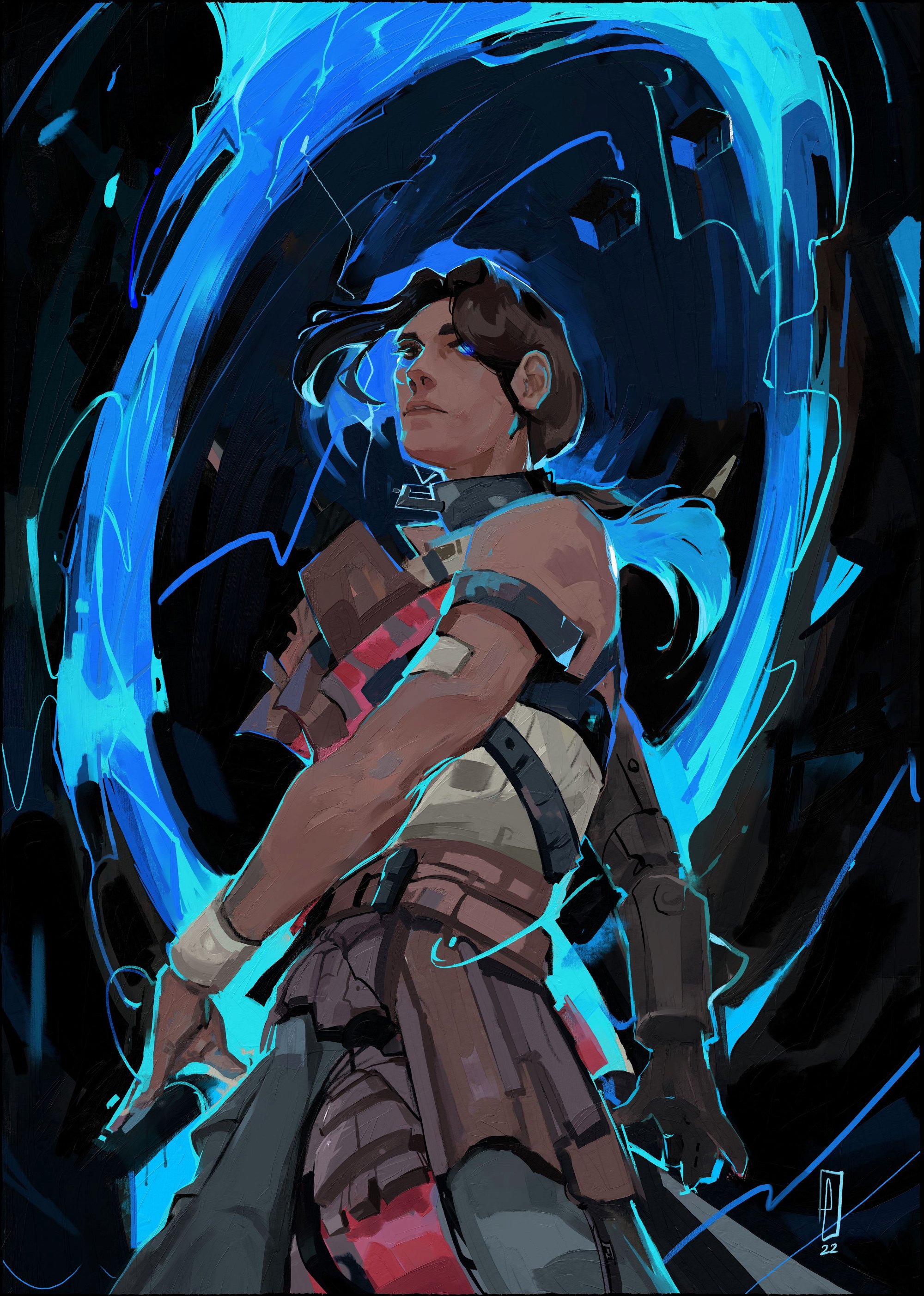 How do you see the future of comic books evolving, both in terms of storytelling and artistic styles?
How do you see the future of comic books evolving, both in terms of storytelling and artistic styles?
I love books and all printed stuff, I still read and buy loads of printed comics and books but the future of the industry will probably be on digital platforms, not necessarily webtoon format, though it might be easier to read on the phone, but digital in general. We’re already seeing the impact platforms like MangaPlus are having thanks to the accessibility of their products. The next generations and the current ones have progressively smaller places to live in (and to store things in) and less time to spend on reading, that’s why I think that online publishing will be our future, it makes logical and practical sense to carry, let’s say, five issues of your favorite comics all in one app than a dozen of comic books in your backpack. Thanks, hectic lifestyle!
Storytelling-wise I think that the narration style will evolve toward a more “cinematic” approach, similar to the one storyboard has, even in the animation and game industry we can see a growing experimentation with different camera angles/motions and 2D VFX so maybe comics will evolve accordingly? We will see.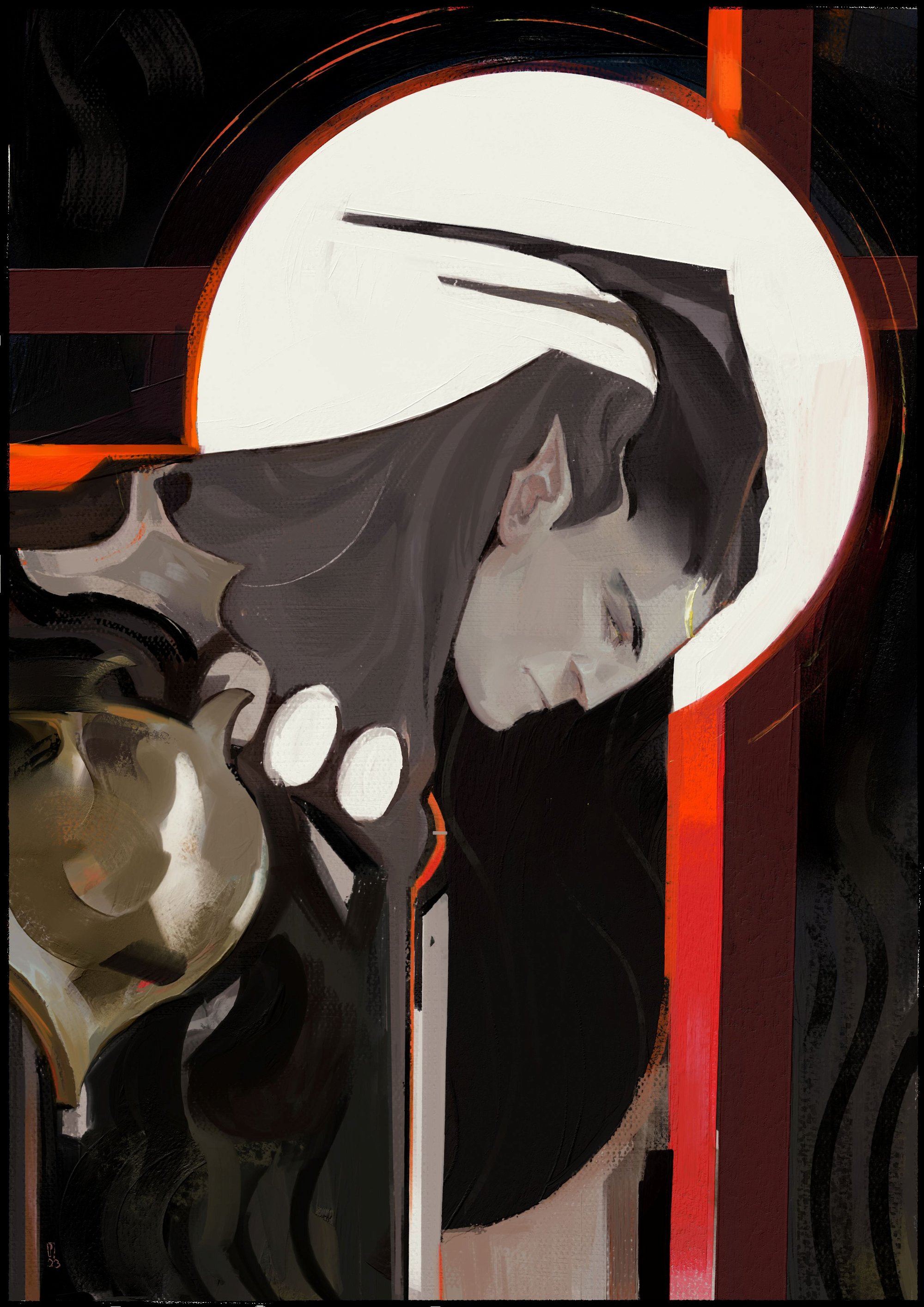 How do you react to the evolution in the comic industry? Do you approach your projects differently than a few years ago?
How do you react to the evolution in the comic industry? Do you approach your projects differently than a few years ago?
I've always been fascinated by change and the comic industry is one of the first ones that has to be able to keep up with how fast our way of understanding and telling stories evolves. I don't think I've ever intentionally changed my approach over the years, I noticed, however, a change in the dynamism and direction of my works! When it comes to information, entertainment, news, or interesting things, in general, I'm like a sponge, even when working I'm always listening to something so maybe that's to blame, I spend too much time on the internet and subconsciously adapted to our cultural changes hehe- jokes aside, I think that keeping up with whatever new media, movie/series or videogame that comes out is incredibly important to then analyze them and understand and learn from them if we can. Mental stagnation is terrifying for me.
Thank you, Lorenza, for letting us peek into your art studio and hear about your art journey. We hope the evolving comic industry will bring lots of inspiration to your future work and we look forward to hearing more about your projects.
Escape Motions Team
----
Learn more about Lorenza Pigliamosche: instagram.com/_pigliamosche_
